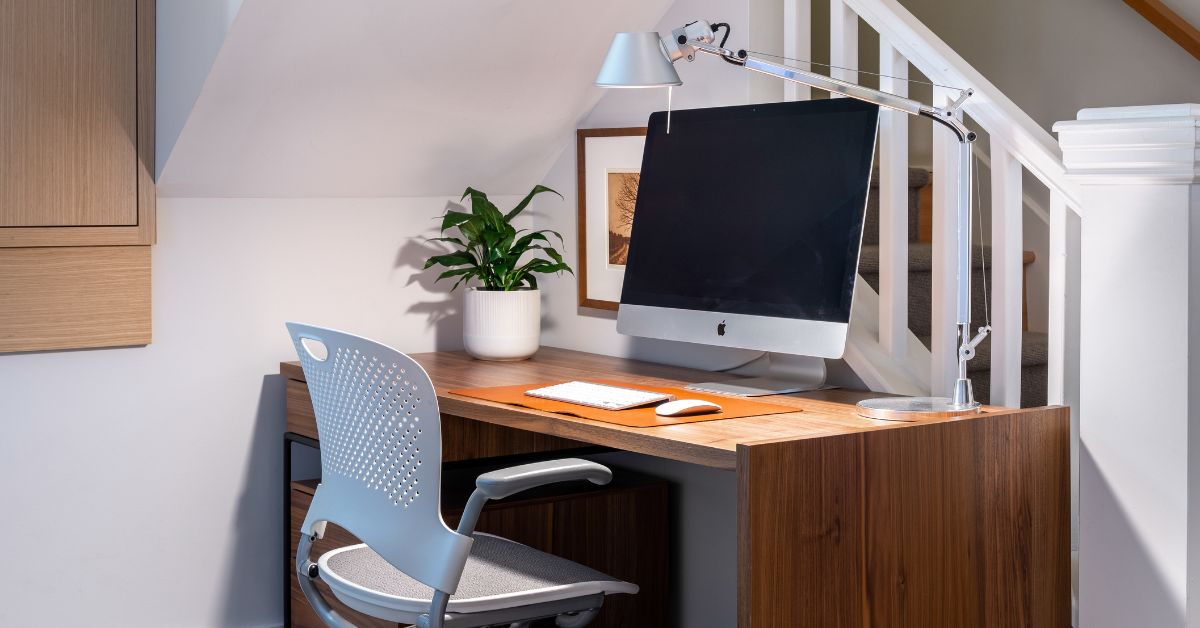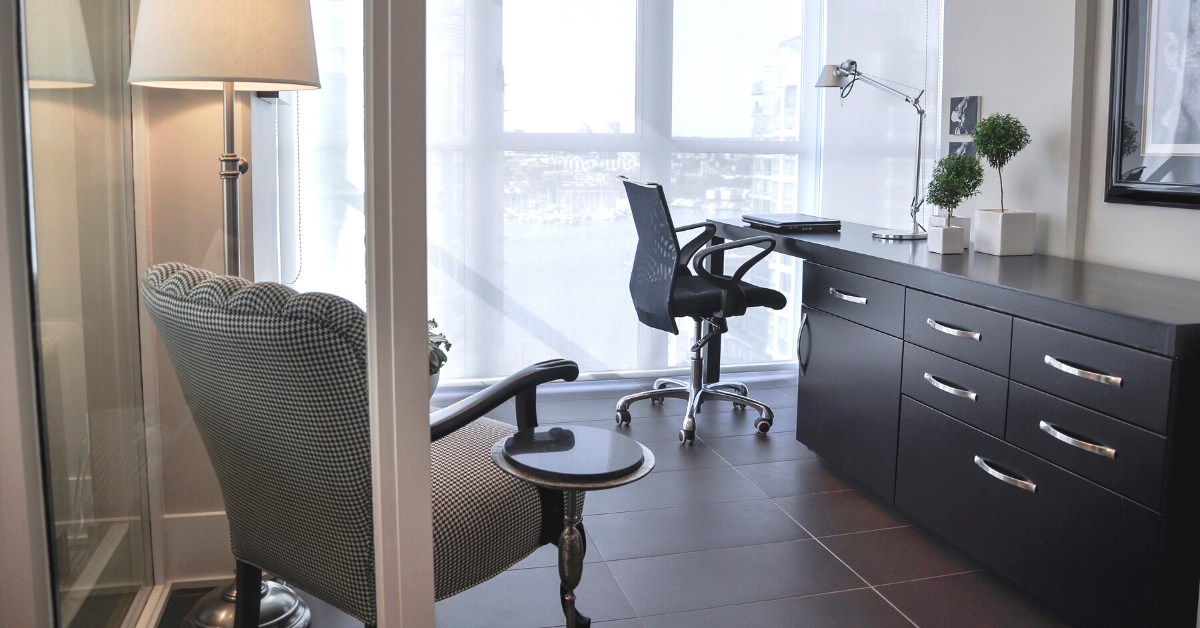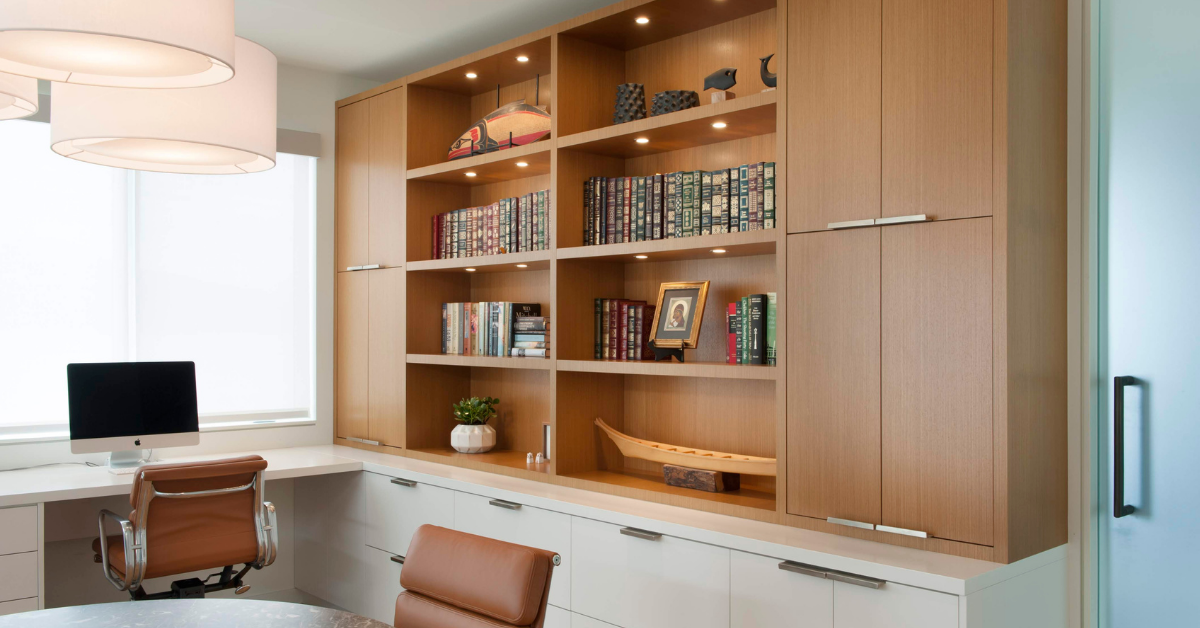How to build a "hybrid work solution" for yourself and your team that supports productivity and flexibility
As BC continues its COVID-19 reopening plan, perhaps the second most “up in the air” topic leading into Phase 4 is whether or not companies will continue allowing their teams to work from home. During the past year-and-a-half, many Canadians didn’t just adapt to working from home; they fully embraced the flexibility and convenience of a work-from-home lifestyle. And while others couldn’t wait for the day they could return to the office, it’s becoming clear that both options have their pros and cons. So how can small business owners and entrepreneurs develop a “hybrid work solution” that allows for both?
We recently talked to Dwaina and Molly Sprague of Good Space Plans Online, a Vancouver-based online interior design company, about what they’ve seen throughout this whole work-from-home era. Is it just another trend that’s waiting to pass, or is it quickly evolving into a workplace standard? On a recent episode of the TACTICAL TITANS podcast, we discussed what a hybrid work solution might look like in the years ahead.
Read on for more expert insights on how to build a hybrid work solution for yourself and your team that supports maximum productivity and flexibility.

What the future of work may look like
It’s hard to plan for the future when we don’t know what tomorrow will bring. Dwaina and Molly of Good Space predict that more and more businesses will likely start supporting some form of a hybrid working solution to allow staff the flexibility to work from home, at least part of the time.
It’s something that many tech companies and start-ups have been doing even before the pandemic. And now that more people have experienced working from home, many will expect that extra flexibility in working locations from their employer.
“It’s interesting, we were looking at projects of large businesses ... restructuring their entire business model to serve this new, you can work from home if that serves the purpose of your work today, or you can work from our workspace,” shares Molly.
So what might this look like?
For some businesses, this may require a few new policies that allow their teams to work from home on a designated day each week, like Fridays. Or it may mean employees are given the option of a half-office-half-home schedule. As another option, other employers may offer a bank of work-from-home days they get each year or month.
On top of flexibility in work locations, some corporations are also offering allowances to their staff to set up home offices and support their needs at home.
“I heard a CEO describe it as, as an employer, we were given so much power. It fluxed so greatly that now this pandemic has forced the power back to the employee,” adds Molly. “And he’s like, that’s where it should be. My job isn’t to reign over them. My job is to make their ability to do the job I’m asking easier.”

How to design a home workspace for productivity and comfort
With extra work flexibility expected to stick around, it might also be time to start making our temporary home workspaces into something a little more permanent.
“I can’t tell you how many phone calls I get people saying, ‘you know what, it’s been two months, and I can’t keep working at my dining room table,” shares Molly.
“Finding a way that kind of makes us comfortable in a workspace, whether it’s home workspace or office corporate workspace, is essential to our wellness, our mental health and our productivity,” adds Dwaina. “Above all, we’re there to get stuff done. That’s why we go to work.”
We want to work from a space that makes us feel calm and comfortable. Here are Dwaina’s top recommendations when setting up your home office hybrid space for long-term productivity.
Get rid of everything you don’t need
First and foremost, get rid of absolutely anything in your space that you don’t need, love, or use. “We have way too much stuff,” shares Dwaina. “Whether we know it or not, every piece of stuff has an energetic impact on you. So get rid of it.”
Create a designated system
When we’re working from home, the times when our work day starts and ends can feel blurred. For many, working every day at the dining room table is a very real possibility, and it can make it difficult to separate your work from your personal life. “Create a designated system,” advises Dwaina. “[A system where] when I’m finished my work time, I’m going to pick this all up and I have an actual designated space to put it.”
Have flexibility in your furnishings
Lastly, creating a healthy workspace that supports you and your body is key. Invest in flexible furnishings that make you feel comfortable in your space. “Get a decent office chair that actually looks a little more residential ... a lot of companies are starting to do that now, even IKEA,” recommends Dwaina. “So get yourself a chair that still looks decent in your home; if it’s sitting at your dining room table, it could be rolled into another room like the living room and become a living room chair.”

Tune into TACTICAL TITANS, presented by Justin Lam
To learn more about what a “hybrid work model” might look like, listen to our recent podcast with special guests Dwaina and Molly Sprague from Good Space Plans Online, as they chat with Justin about how business owners and employees alike are redesigning their corporate and home offices to adapt to a new flexible work model. Available now on all streaming platforms. Listen now
Are you looking for more hands-on coaching and business advice to help you gain clarity and confidence in your decision-making? Our TACTICAL coaching program is specially designed to support small business owners and entrepreneurs through the detours and get you back on track to your destination. Learn more

